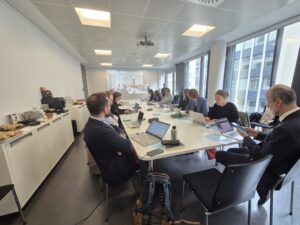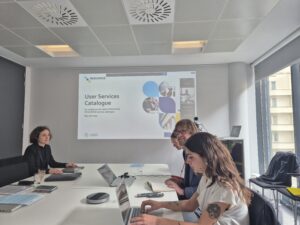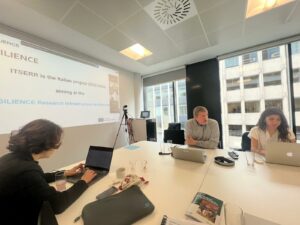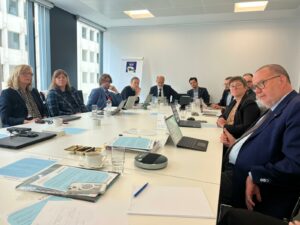Highlights from RESILIENCE’s General Assembly
RESILIENCE's General Assembly met today in Brussels, discussing the status of the Research infrastructure, the achievements up to now and the work that needs to be done to be ready for the Implementation Phase.
Status of RESILIENCE PPP (Preparatory Phase Project)
The status of RESILIENCE PPP in terms of objectives, tasks and achievements was presented by RESILIENCE’s executive director Francesca Cadeddu (Fscire). The good news in that was that RESILIENCE is on the right track on the operational level, as performed by the different workpackages. Examples of these are the definition of the financial support and strategy, the signing of formal agreements with service providers and the finalization of the user strategy including a system for continuously cheking on what researchers and others need.
Work to Do
At the same time, there is still substantial work to do to be ready for the next phase of the research infrastructure, the Implementation Phase (starting June 2026 and lasting for 8 years). Reflection on where the research infrastructure wants to go in the next phase is foreseen. On the agenda is also the topic of the technological developments: how will RESILIENCE trigger and support these developments so that the future users can benefit?
Service Catalogue
Work on the service catalogue is progressing steadily. Currently, 14 services are available for the service catalogue, but more have been collected: roughly 50% are open access and 25% have a physical component. This includes the Transnational Access program and facilitating access to remote collections. Most of the services in the future service catalogue will be provided by the future national nodes. The final version of the service catalogue is expected in November 2025.
Growing Collaboration on a European Level
On a European level, a growing collaboration with other research infrastructures and other institutions can be observed, while more and more personal contacts were also made. Examples are these the efforts to have future RESILIENCE services presented in the EOSC and SSHOC envirments, and the efforts to collaborate with other research infrastructures creating a portable book heritage lab.
The Italian project ITSERR and its marketplace also passed, aiming at the RESILIENCE RI reinforcement. This marketplace could be seen as a European one-stop hub, connection religious studies research projects with cutting-edge ITC, AI-as-a-Service and research competences. The marketplace is intended to be available during a period of 10 years.
ERIC
Important to become an ERIC starting 2026 (European Research Infrastructure Consortium) is the support of European countries. The status of the national support by the government was discussed, at which the hope was expressed that as many countries as possible will participate.




About the General Assembly
The General Assembly is composed representatives of the partners of the consortium, and its meetings are the place where strategic issues are discussed. Usually the General Assembly convenes twice a year.